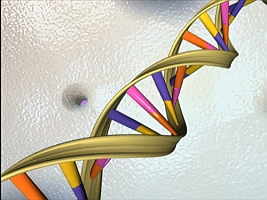The Mayo Clinic in Rochester, Minnesota and Cancer Genetics Inc. in Rutherford, New Jersey formed OncoSpire Genomics, a joint venture to develop personalized cancer diagnostics based on next-generation genomic sequencing. Financial aspects of the deal were not disclosed.
Cancer Genetics develops tests to discover genetic abnormalities, particularly those leading to personalized management of cancer. Among the technologies used by the company is next-generation sequencing, which employs massive, parallel processing of genomic data.
Next-generation sequencing makes possible the analysis of large blocks of DNA base pairs spanning the entire genome. First-generation technologies were limited to single or at most a few DNA fragments processed sequentially.
The collaboration, say the parties, is made possible in part by the rapid advances in sequencing technologies and the accompanying decline in cost of whole genomic sequencing. According to the National Genome Research Institute, part of NIH, the cost of sequencing a genome declined from more than $95,000 in 2001 to less than $5,700 in January 2013; see chart below.
OncoSpire will be equally owned by the two organizations and located in Rochester. Cancer Genetics is expected to provide operating capital and commercial expertise. Mayo Clinic will offer in-kind services such as sequencing and lab resources, as well as its clinical and research expertise. The venture is expected to take advantage of genomic technologies in the clinic’s Medical Genome Facility.
The venture’s agenda will be determined by mutually identified projects in Mayo Clinic’s Biomarker Discovery Program, part of the clinic’s Center for Individualized Medicine. That program identifies molecular substances in the body called biomarkers that serve as indicators of disease, including cancer. Biomarkers are found in human tissue and fluids, such as blood or urine. The venture’s initial targets are expected to be biomarkers for hematological and urogenital cancers, with further targets determined by a joint scientific committee.

Cost of sequencing a whole genome, 2001 to 2013. Click on image for full size view. (National Human Genome Research Institute)
Read more:
- Biotech, Sloan-Kettering Partner on Blood Cancer Test
- Synthetic Biology Census Shows Company Growth, Consolidation
- Oregon Health, Intel Partner on Genome Analysis Computing
- Thermo Scientific Acquires Sequencing Technology Developer
- 23andMe Identifies New Genetic Nearsightedness Factors
* * *


 RSS - Posts
RSS - Posts
[…] Mayo Clinic, Cancer Genetics Form Cancer Diagnostics Venture […]